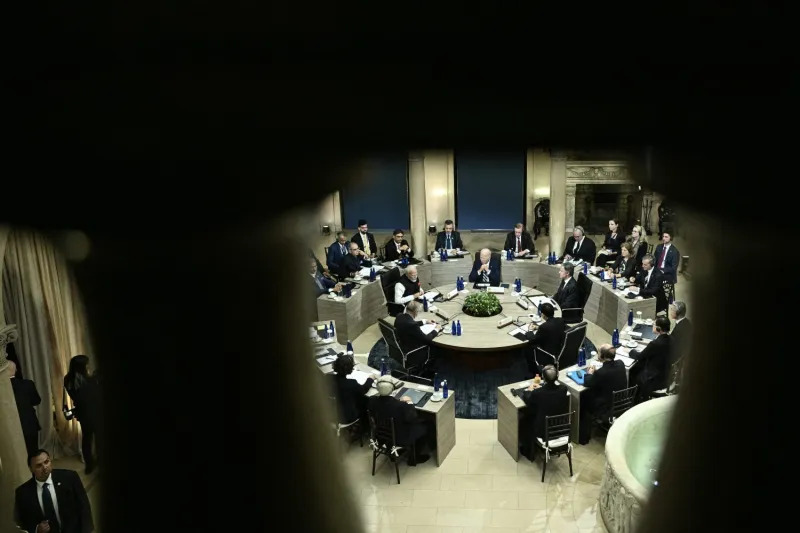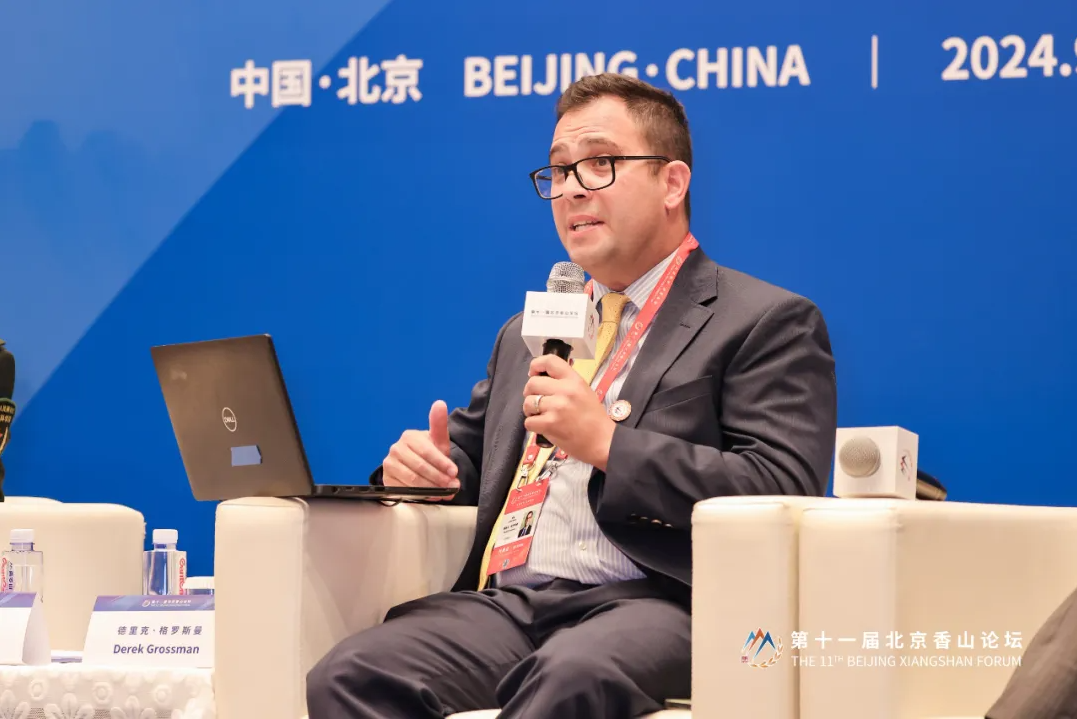
Zhao Minghao, Professor, Institute of International Studies at Fudan University, and China Forum Expert
Dec 20, 2024
Increased cooperation among Quad countries and partners in the Indo-Pacific region poses a challenge for Chinese diplomacy. The new U.S. president will not only inherit the security framework built under Joe Biden, but is likely to harden it even further. Thus, China has reason to worry that tensions will rise and that new hot spots will be created.
Ted Galen Carpenter, Senior Fellow, Randolph Bourne Institute
Dec 20, 2024
Former Taiwanese President Tsai Ing-wen’s call for the U.S. to prioritize aid to Ukraine over Taiwan drew scrutiny, especially given rising cross-Strait tensions. While Tsai’s stance may momentarily shift Trump’s administration's attention in East Asia, it risks undermining his likely focus on ending the costly Ukraine conflict and confronting China more aggressively, with Taiwan as a key flashpoint.
Li Zixin, Associate Researcher, China Institute of International Studies
Nov 22, 2024
Threats of violence are pushing the region to the brink. Israel said it would exact a “deadly and heavy” toll for any Iranian attack. In turn, Iran promised to “retaliate tenfold,” and its hardliners want to lift the ban on developing nuclear weapons. Lines are blurring that were once seen as inviolable.
Warwick Powell, Adjunct Professor at Queensland University of Technology
Nov 22, 2024
The new Japanese prime minister wants to reassert Japan’s standing as a regional power, which will challenge the expectations of Washington elites and further rattle a region that is seeking to skirt the dynamics of great power competition.
He Wenping, Senior Research Fellow, Charhar Institute and West Asia and Africa Studies Institute of the China Academy of Social Sciences
Oct 25, 2024
Such a conflict would not align with American interests, as there would be no assurance of success and it would be ethically unjustified. War between Israel and Iran could spiral into an uncontrollable and devastating Armageddon in the Middle East.
Xiao Bin, Deputy Secretary-general, Center for Shanghai Cooperation Organization Studies, Chinese Association of Social Sciences
Oct 25, 2024
The longer the war drags on, the more variables there will be. Bearing this in mind, Volodymyr Zelenskyy may modify his tough stance against giving up land and seek more pragmatic ways to end the war, such as a truce conditional on NATO or European Union membership.
Sajjad Ashraf, Former Adjunct Professor, National University of Singapore
Oct 25, 2024
The withdrawal of the Philippine coast guard cutter BRP Teresa Magbanua from Sabina Shoal highlights rising tensions in the South China Sea, where China and the Philippines assert conflicting territorial claims. While it opens the door for potential diplomacy, the incident also underscores the Philippines' growing alignment with the U.S. amid concerns of becoming collateral damage in broader geopolitical rivalries.
Xiao Bin, Deputy Secretary-general, Center for Shanghai Cooperation Organization Studies, Chinese Association of Social Sciences
Oct 08, 2024
For the Ukrainian president to consummate his victory plan he must either wait for or create favorable external conditions. The plan is closely intertwined with the evolving dynamics of relations between China, the United States and Russia.
Brian Wong, Assistant Professor in Philosophy and Fellow at Centre on Contemporary China and the World, HKU and Rhodes Scholar
Sep 30, 2024
While China is well-positioned to mediate peace in Myanmar due to its economic and strategic interests, its current approach of maintaining relations with all sides in the conflict has not been sufficient to drive meaningful progress. Lasting peace will require China to take a firmer stance, promote constructive dialogue, and collaborate with regional partners to address the humanitarian crisis and political instability.

Sep 30, 2024
Derek Grossman is a senior defense analyst at RAND focused on a range of national security policy and Indo-Pacific security issues. He closely tracks intensifying U.S.-China competition throughout the region, including Asia and Oceania. Grossman was interviewed recently by Wang Zhijin, a reporter for China-US Focus, at the recent Xiangshan Forum in Beijing.
Back to Top

- China-US Focus builds trust and understanding between the U.S. and China through open dialogue among thought leaders.
- Our Offerings
- Topics
- Videos
- Podcasts
- Columnists
- Research Reports
- Focus Digest
- Stay Connected
-
Thanks for signing up!
- Get the latest stories from China-US Focus weekly.